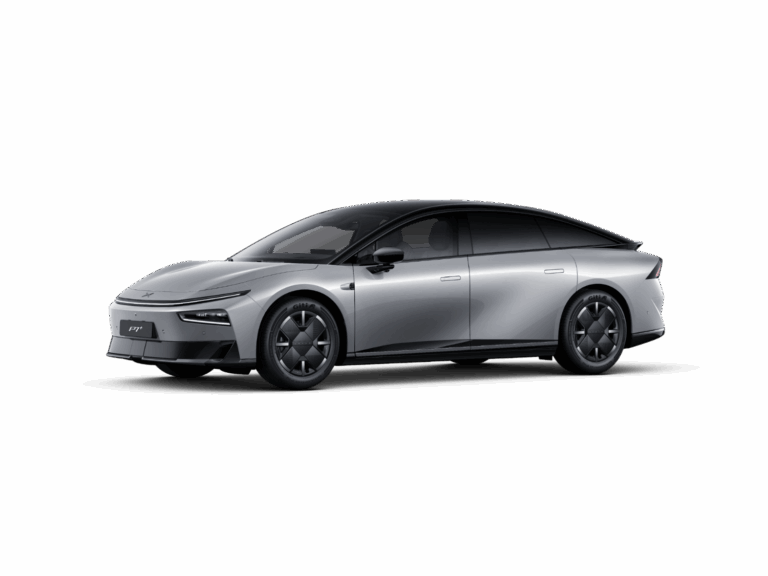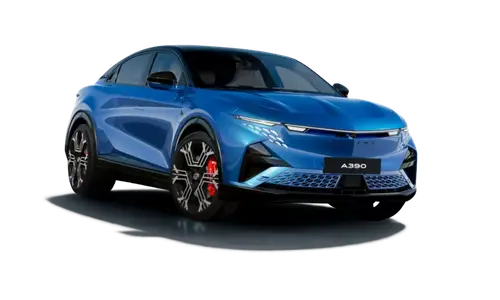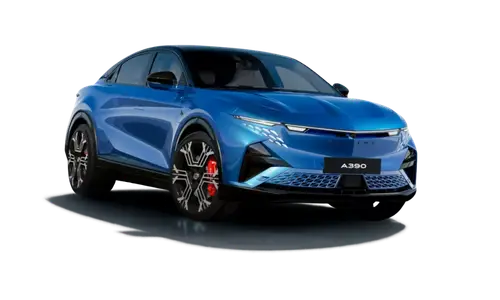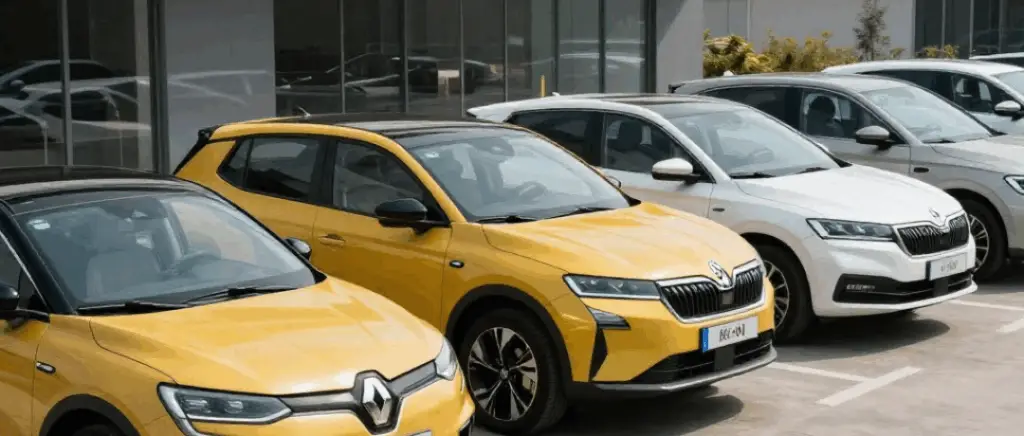Monday to Friday
9am - 12.30pm - 2pm - 7pm
Benefits on the road to a more sustainable future
La CSR (Corporate Social Responsibility) established in 2019 makes companies more aware of the impact of their activities on the planet, which can help them to improve their brand image, and comply with sustainability regulations.
Reductions in greenhouse gas emissions linked to the use of electric cars
Electric cars are increasingly popular in France due to their low carbon footprint and their positive environmental impact. This means that by using electric cars, companies can significantly reduce their overall carbon footprint.
In addition, the electricity used to power Electric cars in France are increasingly powered by renewable energy sources, such as wind and solar power. Greenhouse gas emissions linked to the use of electric cars in France are as follows 63 % lower than with petrol cars. They produce 2 to 6 times more CO2 emissions over its entire life cycle.
It is important to note that emissions linked to the production of electricity to power electric cars can vary depending on the energy sources used, which contributes even further to reducing our carbon footprint. However, governments and companies are increasingly being encouraged to invest in recharging infrastructure to encourage people to buy electric cars. They use less energy to travel the same distance as a petrol or diesel car.
What's more, the energy used to power electric cars can come from renewable energy sources.
The benefits of complying with environmental standards and regulations
More and more companies are adopting electric vehicles for their vehicle fleet because of the benefits they bring in terms of compliance with environmental standards and regulations.
Companies that adopt electric cars can also benefit from tax credits and other tax incentives, such as the environmental bonus, exemption from company car tax and regional subsidies to help cover the costs of acquiring these vehicles.
EPZs: an incentive for companies to electrify their car fleets
According to Santé publique France, 40,000 people die every year from air pollutionlinked to exposure to fine particles and nitrogen dioxide. To this end Low-emission zones (defined areas in town where access by the most polluting vehicles is restricted) were introduced in July 2016. They require companies to switch to less polluting vehicles, a change of vehicle fleet will be needed within the next five years. Companies such as as Ikea and DHL are already well advanced on this project. Since 1ᵉʳ January 2023, made compulsory in around ten conurbationsof Montpellier to Lyon via Marseille. The year 2025, this will be imperative for 43 of them. The EPZ reduce operating costs for businesses, retailers and consumers. electric vehicles also provide employees with greater comfort (silent operation, rapid recharging, performance). Lastly, a company that has its own models within its vehicle fleet will find it easier to stand out from other companies, thanks in particular to its commitment to the environment.
Also worth reading ⇒ EPZ: what it means for businesses
The economic advantages of leasing a fleet of electric cars for your company
The economic benefits of leasing electric cars for companies are numerous. First of all, the running costs are lower. What's more, electric vehicles cost less to maintain. Lastly, companies can benefit from various forms of support, which we'll look at in more detail below, which can considerably reduce acquisition costs.
Energy costs: significant savings
Fuel economy is one of the main arguments when companies consider electrifying their vehicles. vehicle fleet. It is much lower than that of combustion engine vehicles, which reduces operating costs for businesses.
Electric vehicles consume around 4 to 5 times less fuel than petrol or diesel vehicles to cover the same distance. Compared with an internal combustion model, an electric city car with an on-board battery 22 kWh pays off its carbon debt (excess pollution emitted during production) before it reaches 20,000 km,
Also worth reading ⇒ Comparison: the electric car or the internal combustion engine car
Let's take the example of a electric city car popular manufacturer Peugeot compared to its thermal equivalent to highlight this fact:
| Peugeot 208 | Peugeot e-208 | |
|---|---|---|
|
Average consumption
|
5.5 l/100 km
|
15 kWh/100 km
|
|
Average price
|
2 €/litre
|
0.17 €/kWh
|
|
Price per 100 km
|
11 €
|
2,55 €
|
|
Annual total
|
1 650 €
|
382 (4x lower)
|
Savings on maintenance costs
It is also important to consider the maintenance costs associated with using these clean models.
Compared with combustion-powered cars, clean vehicles have fewer than 600 to 1000 parts for a petrol model and 120 for the electric version. This reduces the risk of breakdowns and extends the life of the electric motor. The brakes on electric cars are also more efficient, reducing the cost of replacing brake pads. Electric car batteries have an average lifespan of 8 to 10 years, depending on the manufacturer and use. However, they are often expensive to replace. Maintenance costs for electric vehicles also vary according to the distance travelled and how much the car is used. This is why the long-term rental (LLD) remains the best option for kick-starting your energy transition.
Maintenance costs for electric cars can also be reduced thanks to insurance policies taken out in advance and maintenance contracts offered by manufacturers.
Also worth reading ⇒ Electric car insurance: all the information
Ultimately, maintenance costs for electric cars are lower than for combustion vehicles. The advantages in terms of energy consumption and environmental impact can justify the potentially higher maintenance costs. It is therefore important, especially for a young VSEs and SMEs to make sure they have the latest information at their fingertips and the most accurate on the maintenance costs of electric vehicles. This lightens the budget for these small companies and allows them to concentrate their finances on other key parts of their business.
Electric vehicles emit less noise than a conventional car. thermal vehicle. Although it is difficult to find precise figures for each model, it is estimated that approximately 60 decibels when travelling at normal speed for a Electric SUV recent as Volvo XC40. This is made possible by the absence of an internal combustion engine and mechanical transmission, which are the main sources of noise in internal combustion cars. A diesel or petrol car, on the other hand, emits 80 decibels or more.
Beev proposes fleet leasing solutions for electric vehicles for businesses, it's easy for a company to find a solution tailored to its needs.
Savings on maintenance costs
Make your energy transition now, with a range of new 100 % electric vehicles available for leasing from Beev!
Government aid: another argument for companies
In France, companies can benefit from a wide range of grants for leasing electric cars. This aid is designed to encourage companies to adopt electric vehicles in order to reduce their carbon footprint. environmental impact and their energy consumption.
One of the main forms of support is the environmental bonusThis scheme allows companies to obtain a reduction of 27 %, capped at €3,000, on the purchase price of a new electric car up to €47,000 including tax. This aid can be combined with other forms of assistance, such as the the region's environmental bonus or interest-free loans.
There is also aid available for companies that install charging stations for the electric vehicles in their fleet. The aid ADVENIR offers bonuses, from maximum amount of €600 excluding VAT for a private car park, with an aid rate of 20 % and 30 % in an open car park for the first 5,000 charging points deployed. Lastly, 100 % electric vehicles are eligible for exemption from company vehicle tax (TVS).
Find out more : Support for the installation of charging points in 2023
Eligibility conditions for these grants vary from region to region and from year to year.
In short, companies in France can benefit from a number of incentives for leasing electric cars for their fleets, such as the environmental bonusthe conversion premiumthe tax credits for charging points and exemptions from taxes on the use of vehicles (TUV).
What are the advantages in terms of budget flexibility?
Electric car hire offers advantages in terms of budget flexibility. Long-term leasing of electric cars allows companies to reduce acquisition costs, as they do not have to invest in the purchase of vehicles. This means that budgets can be devoted to other important investments for the company. Businesses can also benefit from advantageous leasing rates, which can include maintenance and repair services, as well as vehicle replacement options in the event of breakdown.
In addition, the electric car hire allows companies to reduce maintenance costs, because they don't have to worry about the cost of repairing or replacing wearing parts. The electric cars also have a longer lifespan than combustion cars, which reduces long-term replacement costs.
Also worth reading ⇒ TCO (Total cost of ownership): how do you calculate and optimise it?
Reducing vehicle fleet management costs
With the rising cost of fuel electric car hire is becoming increasingly popular with businesses and is therefore becoming a serious alternative for them. It is difficult to give a precise figure for the number of companies hiring electric vehicles. They offer electric cars of all brands (Renault, Tesla, Audi...) and all models, ranging from small city cars to SUV including, of course, the electric vans. An article in the French media tells us that they have jumped by 300 % in a few days during the 4th quarter of 2022. This growing trend is also due to the advantages in terms of fleet management costs.
By renting a fleet of electric cars for your company, it is possible to reduce the costs of managing your vehicle fleet, while enjoying the benefits in terms of energy consumption and environmental impact associated with the use of these vehicles.
Rental of electric cars enables companies to cut costs by eliminating the need to manage the sale or resale of vehicles. Companies can also easily adjust the size of their vehicle fleet according to their needs.
Electric car hire to improve your brand image
Companies are increasingly concerned about their environmental impact and are looking for ways to show their commitment to the environment. Adopting electric cars for its fleet is one of the most important steps companies can take to improve their image by showing their commitment to the environment.
A better reputation: a boon for small businesses
The electric cars emit fewer greenhouse gases than internal combustion models (75 g compared with around 250 g) because they only depend on the source of electricity used to charge the car. Companies that adopt electric cars can therefore show their commitment to fighting climate change and protecting the environment. By adopting electric cars, companies can also improve their image with consumers.
Consumers increasingly concerned about ecology
Companies that adopt electric cars for their car fleets can benefit from a number of advantages in terms of customer attraction and loyalty. More and more consumers are sensitive to environmental issues and are looking for companies that are taking concrete steps to reduce their environmental impact.
By adopting electric cars, companies can show their commitment to the environment and attract consumers who are looking for environmentally-friendly companies. They can also improve their brand image with consumers by showing that they are taking concrete steps to improve their environmental impact.
In addition, they can improve customer loyalty by offering superior services linked to the use of these vehicles. Beev, for example, offers installation of charging points, universal charging cables and a free 100 % charging card.
Conclusion
Hiring a fleet of electric cars is therefore an advantageous solution for companies, as it allows them to benefit from a host of advantages (reduced operating costs, attractive government grants, benefits in kind, improved brand awareness). So it's an interesting compromise for small businesses looking to equip or renew their fleet at a lower cost. So it's important to make sure you've considered all the details beforehand.
What do you think of this option? If you are a young company, do you think this option could be of interest to you in terms of equipping you and your employees?
We look forward to hearing from you!



































